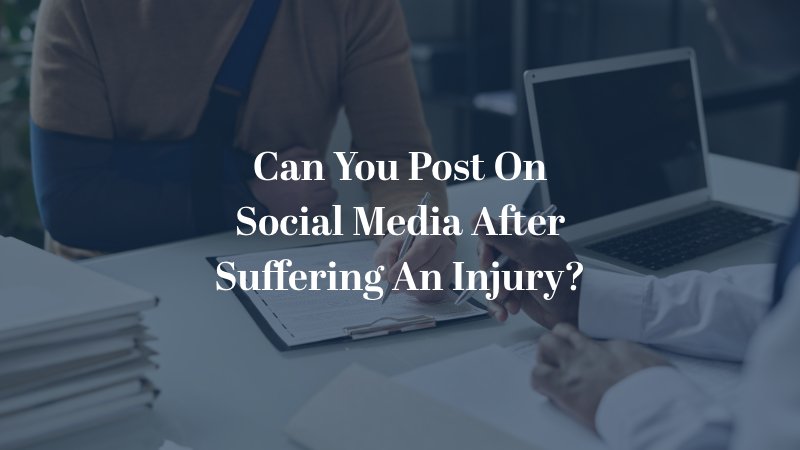In today’s digital age, sharing life’s events on social media comes almost instinctively, whether it involves achievements, vacations, or even sharing the bad times, like illnesses and injuries. After sustaining an injury, you might be inclined to update your friends and family about your recovery on platforms like Facebook, Instagram, or Twitter (X). However, this impulse to share can sometimes have unexpected effects if you’re involved in a personal injury case.

Why Social Media is a Bad Idea After an Injury
It’s important to consider how what you share publicly could be used in legal settings. Workers compensation lawyers in Washington D.C. explain why it’s a bad idea to post on social media and how it can lead to negative outcomes for your case:
Public Visibility
Even if you’ve set strict privacy settings on your social media accounts, posts can still become publicly accessible and potentially be used as evidence in your case. Information shared online can be shared or screenshot by friends or followers, making it available to a broader audience beyond what you intended. This public visibility means that any post, photo, or comment can come under scrutiny during a legal case.
Contradicting Medical Claims
Photos or status updates showing you engaged in physical activities may contradict your medical claims, even if the post doesn’t provide the complete picture. For instance, a single photo showing you lifting a light object could be used to suggest you are capable of far more than you’ve indicated, potentially harming your case.
Comments and Tags by Friends and Family
Even comments and tags from friends or family can impact the perception of your injury. Remarks like “glad you’re feeling better!” might be taken out of context, suggesting recovery even when symptoms persist.
It’s important to be cautious about interactions on your posts that can misrepresent your condition to those evaluating your claim. Your best bet is to avoid posting on social media altogether until your case has concluded.
Monitoring by Insurance and Opposing Counsel
Insurance companies and defense lawyers are known to monitor social media activity to find any information that might weaken your injury claim. They may search for posts that contradict your injury reports, question the severity of your condition, or suggest that you are more active than you claim. This scrutiny can lead to the undervaluing or outright dismissal of your case if not managed carefully.
Downplaying Pain and Suffering
Social media posts reflecting a positive outlook, such as smiling photos or check-ins at social events, might be interpreted as evidence that your injury isn’t as severe as claimed. These posts can inadvertently downplay the pain and suffering you’re experiencing, as opposing parties could argue that your life is seemingly unaffected.
What to Do If You’ve Already Posted on Social Media
If you’ve already posted on social media during your injury claim process, it’s important to handle the situation thoughtfully to protect your case. Here are two important steps you can take:
Avoid Deleting Posts Without Legal Advice
While it might seem like a good idea to delete posts, doing so could lead to accusations of evidence tampering. Courts may view this action negatively, possibly harming your credibility and your case. It’s best to preserve your posts until you receive proper guidance.
Consult with Your Lawyer
It’s crucial to have a conversation with your lawyer about any posts you may have made. Share the content with them so they can provide you with advice on the most appropriate steps to take. They have the knowledge to guide you on whether any action is necessary and how to minimize potential risks.
If you have any questions about social media usage after an accident or need help with a claim, our work injury attorneys in Washington D.C. don’t hesitate to contact us today to schedule a free consultation. Give us a call at (202) 949-6455.